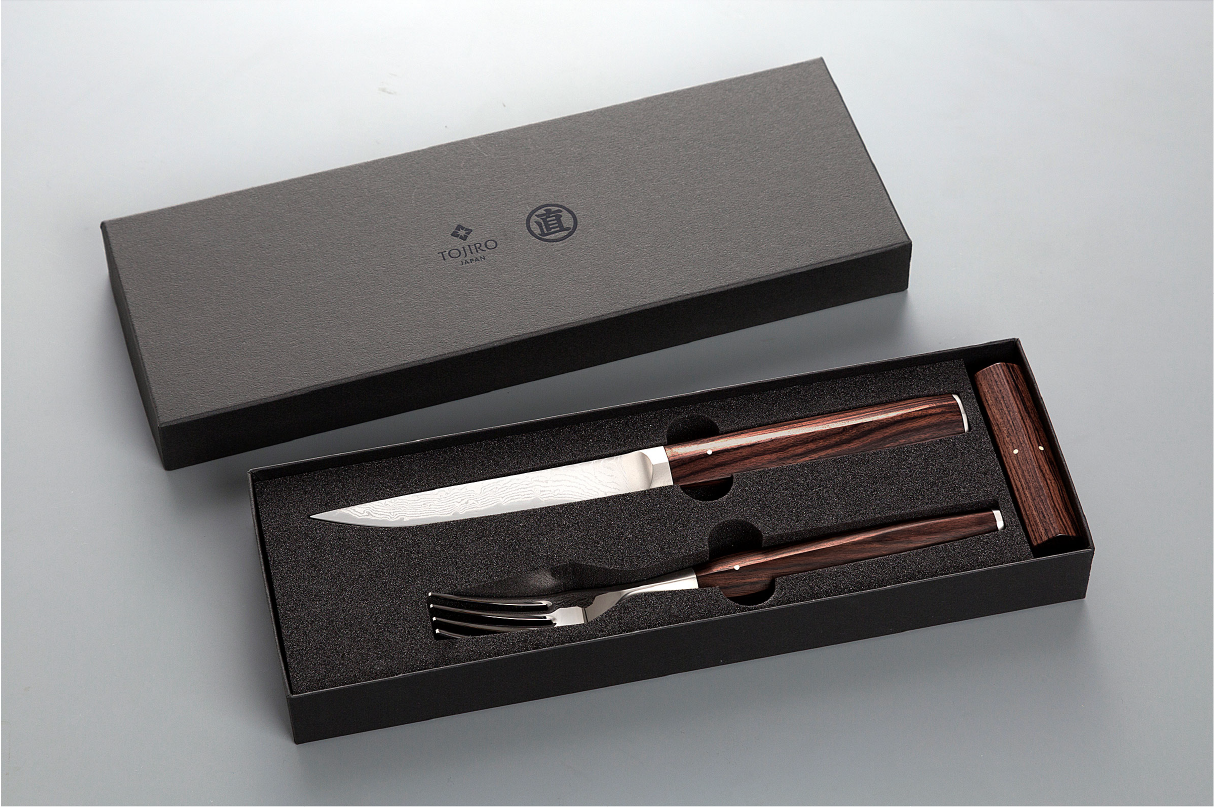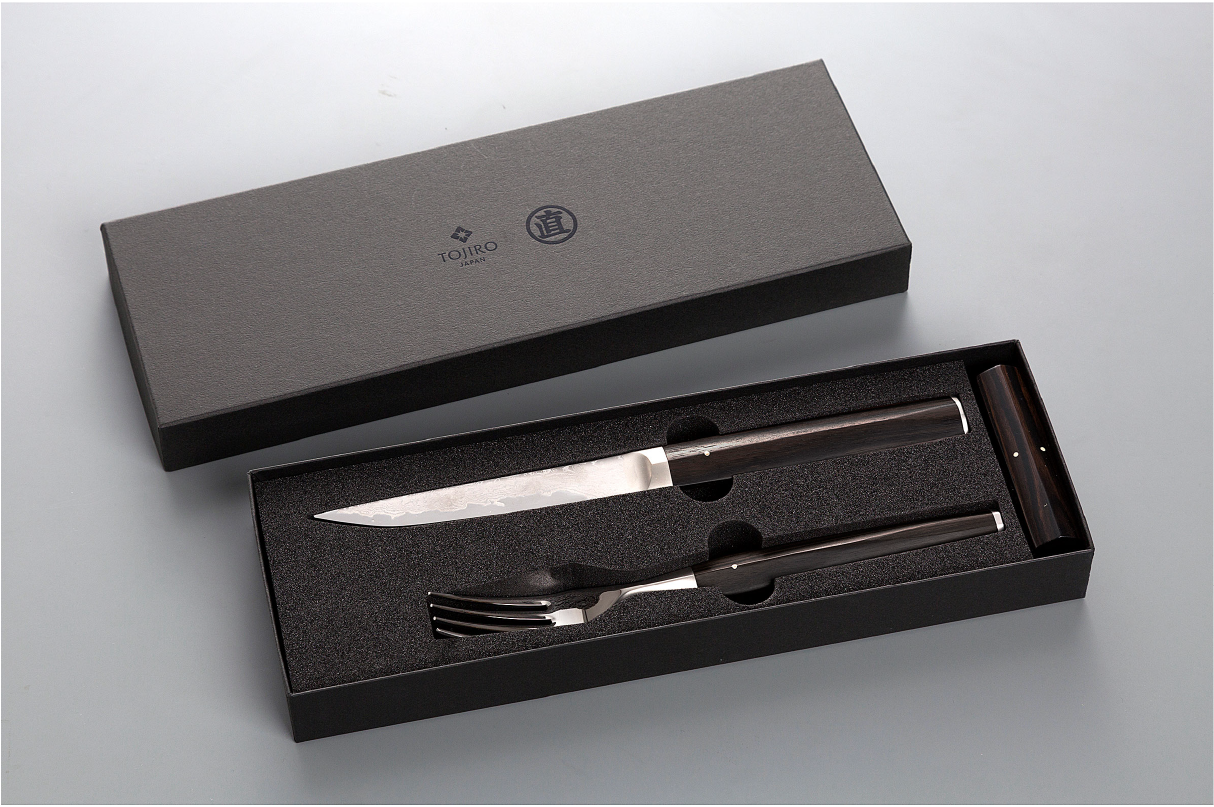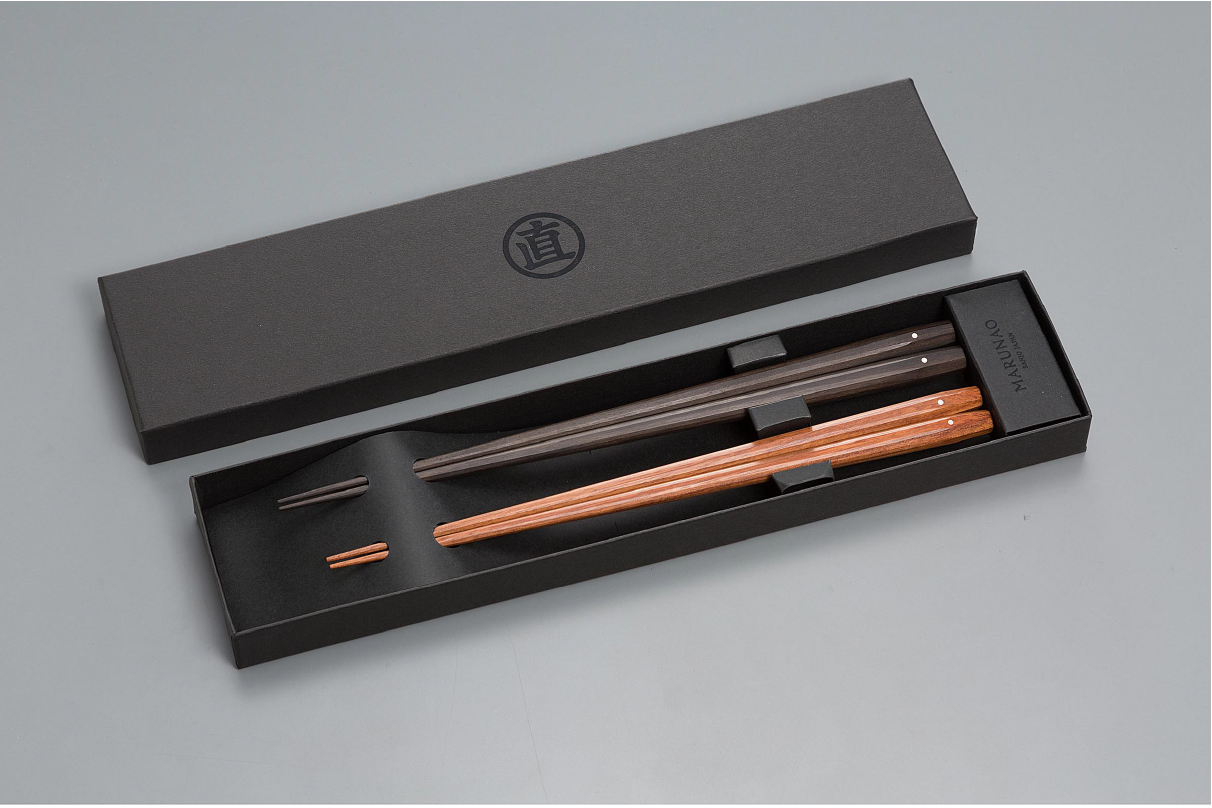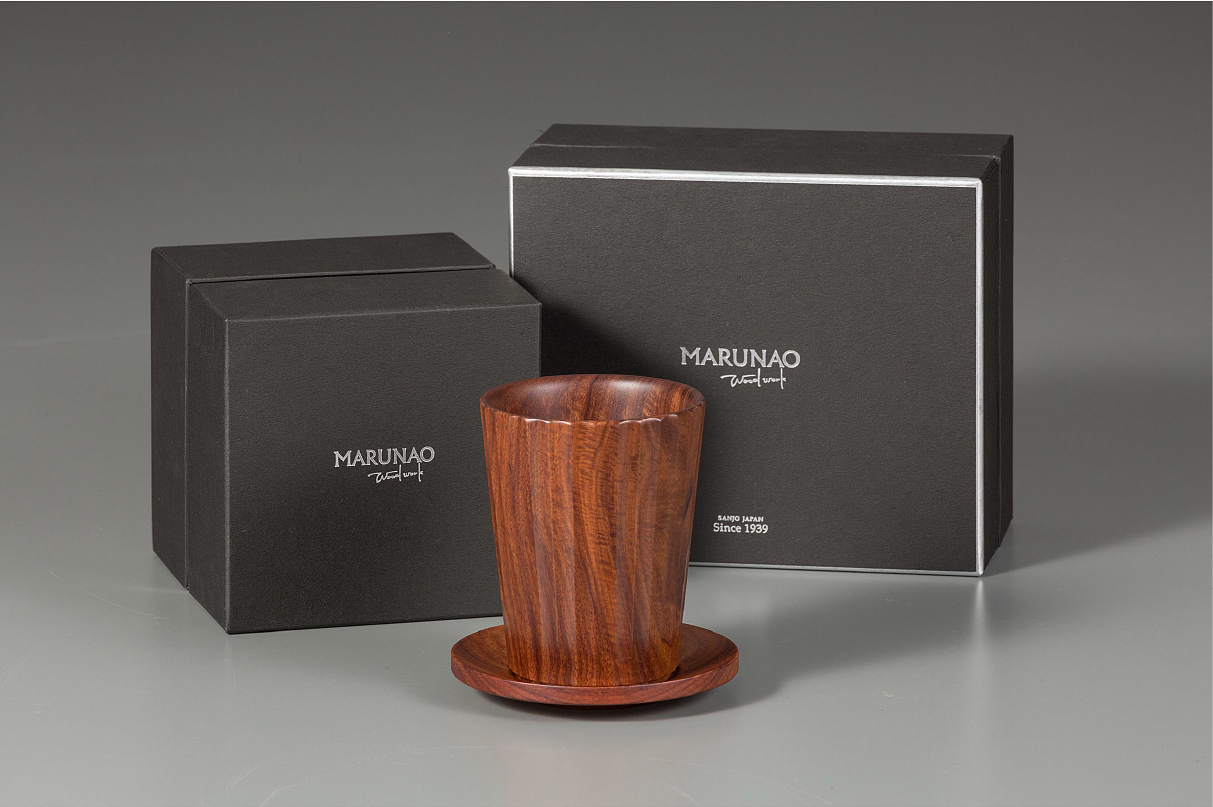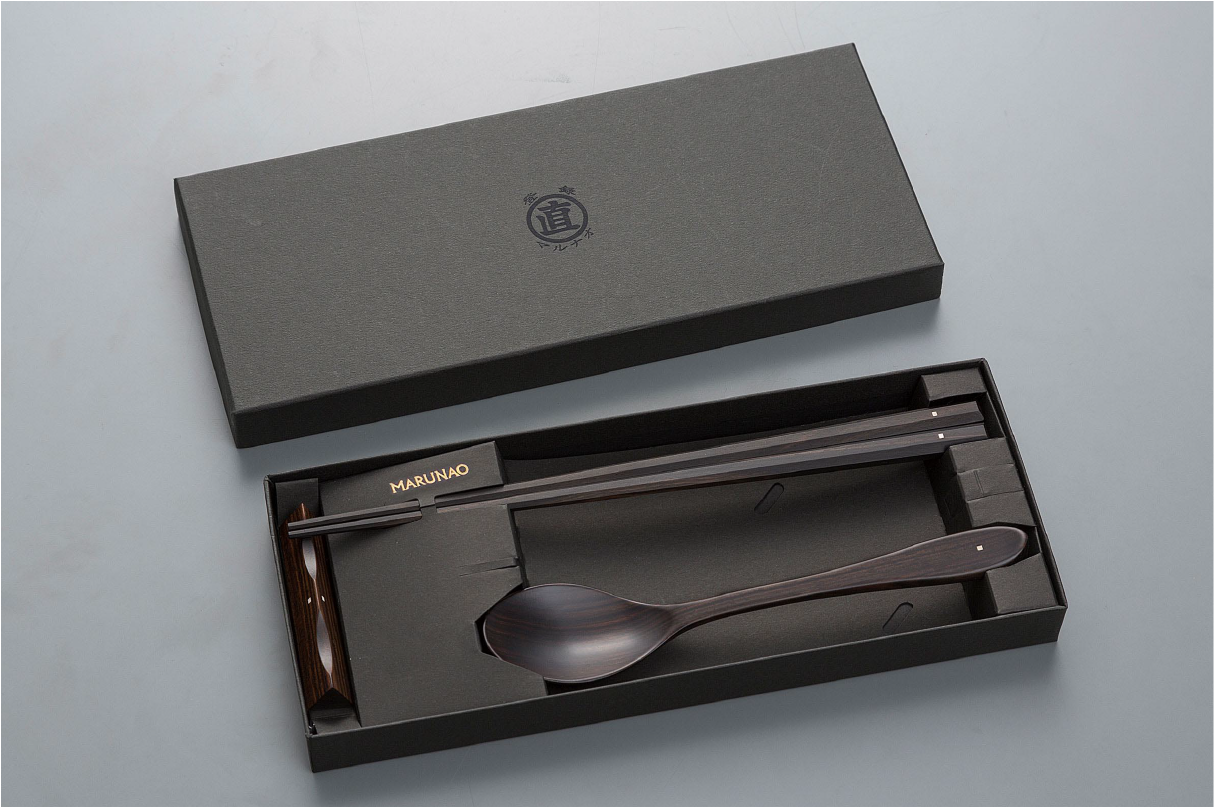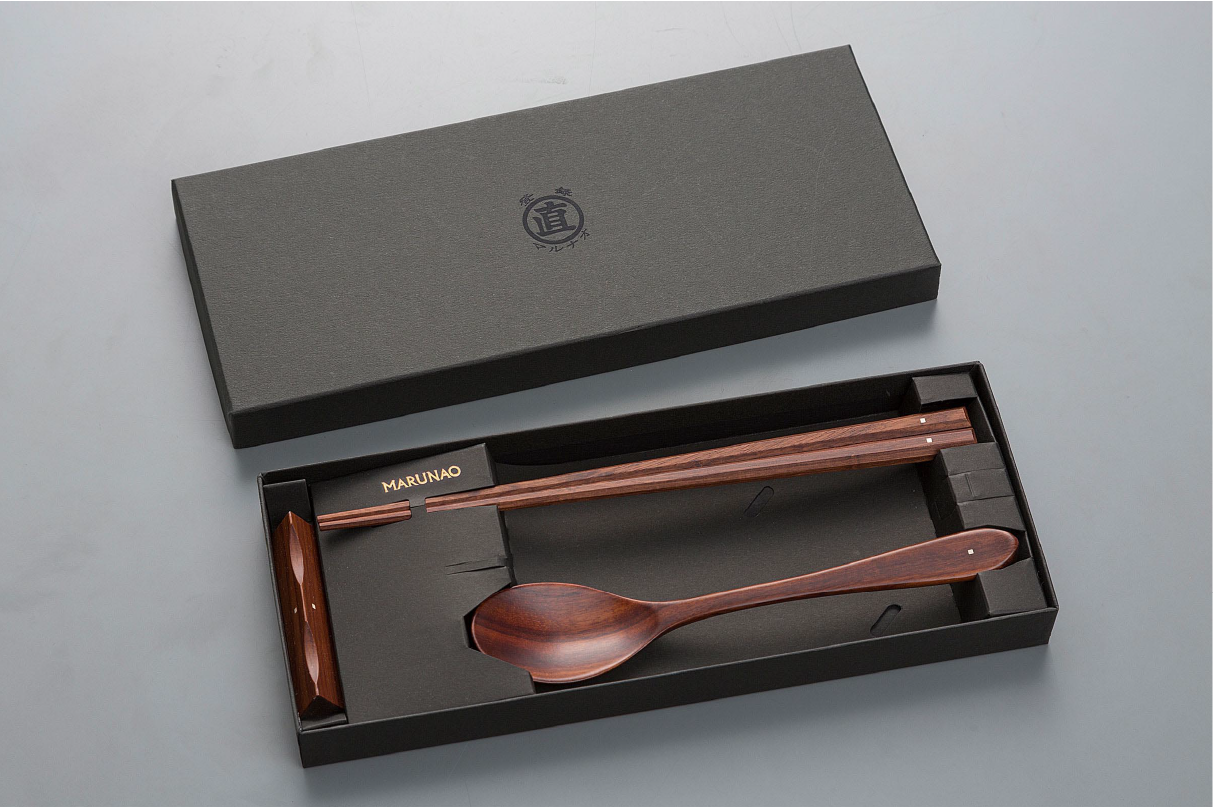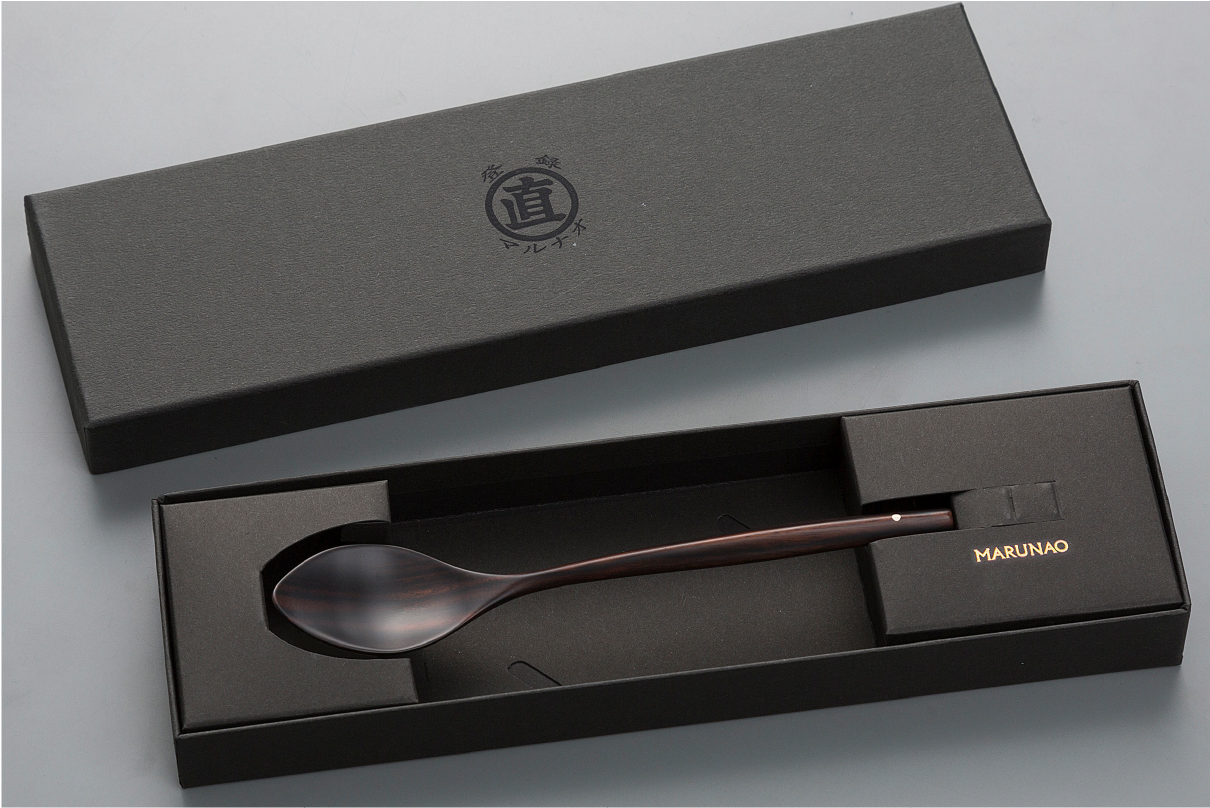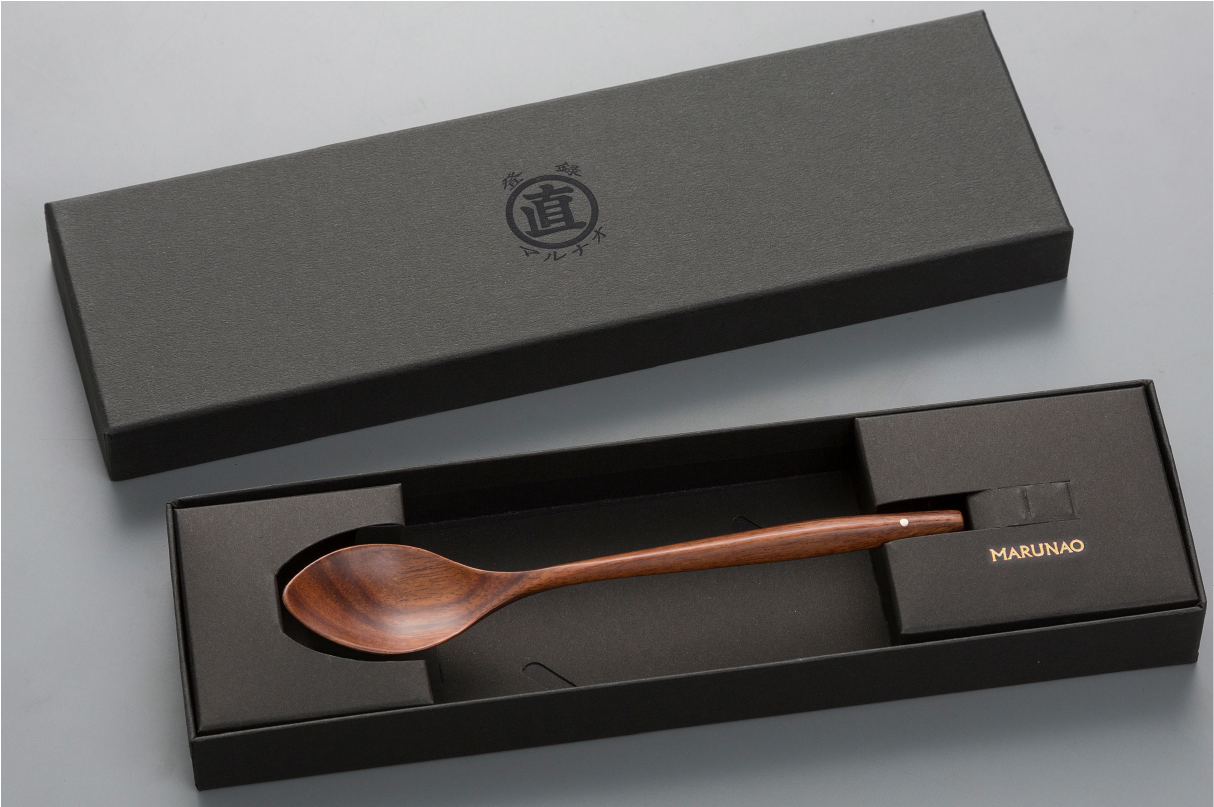Marunao:The pursuit of the essence of craftsmanship
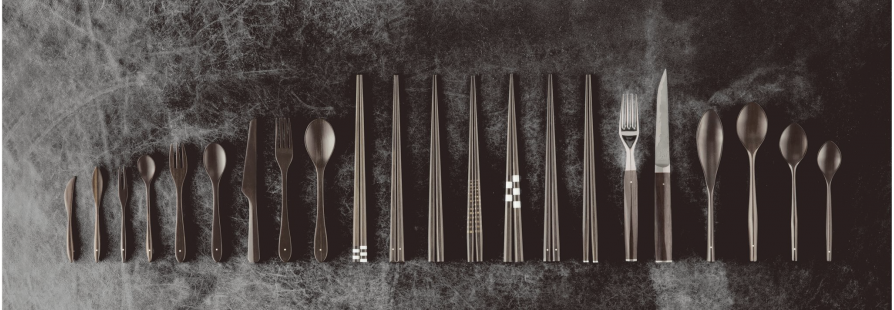
Marunao and chopsticks
Japanese people eat French cuisine, Chinese diners eat Japanese.
Marunao has created a range of new utensils that meets the needs of the modern age. They hopes that diners all over the world using chopsticks and spoons will be able to fully appreciate the taste of their food regardless of where they are based and what regional cuisine they are eating.
What’s more it is their hope that their customers, using our chopsticks, will sense a deep connection with Marunao the moment the food touches their lips.
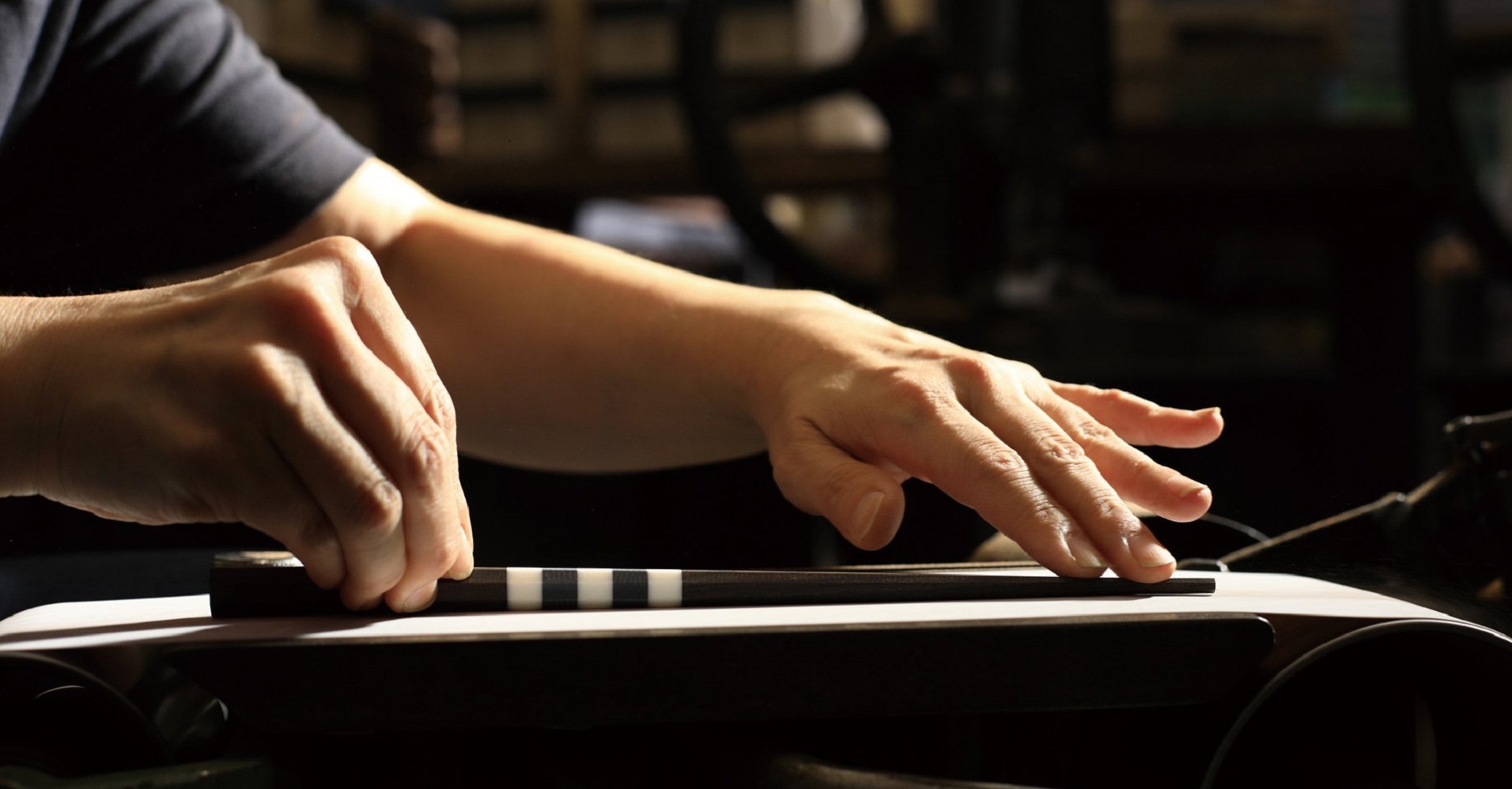
Tools and their history
Without carpenters and blacksmiths not a single tool could be made. Alongside the ‘nomi’ and ‘kanna’, a traditional Japanese sculpting tool and the hand plane, the ‘sumitsubo’, or ink-pot is one of the three sacred tools of the master carpenter. The beginnings of Marunao as a company lie in the manufacture of pull-along ink-pots on wheels, considered an indispensable element for carpenters when building a Japanese house.
At that time, all pull-along ink-pots were made by openwork, a method of hand sculpting using the nomi tool. The first generation of Marunao’s founding family, Naoyoshi Fukuda, was able to procure a pedal operated fret saw from Kanazawa. Through the motorisation of this machine, huge leaps were made in terms of moving into mass production. The year was 1939.
The manufacture of these pull-along ink-pots using traditional sculpting techniques make up an essential part of the company’s make-up, and can be considered the first steps of Marunao, made as they were in the city of Sanjo in Niigata prefecture.
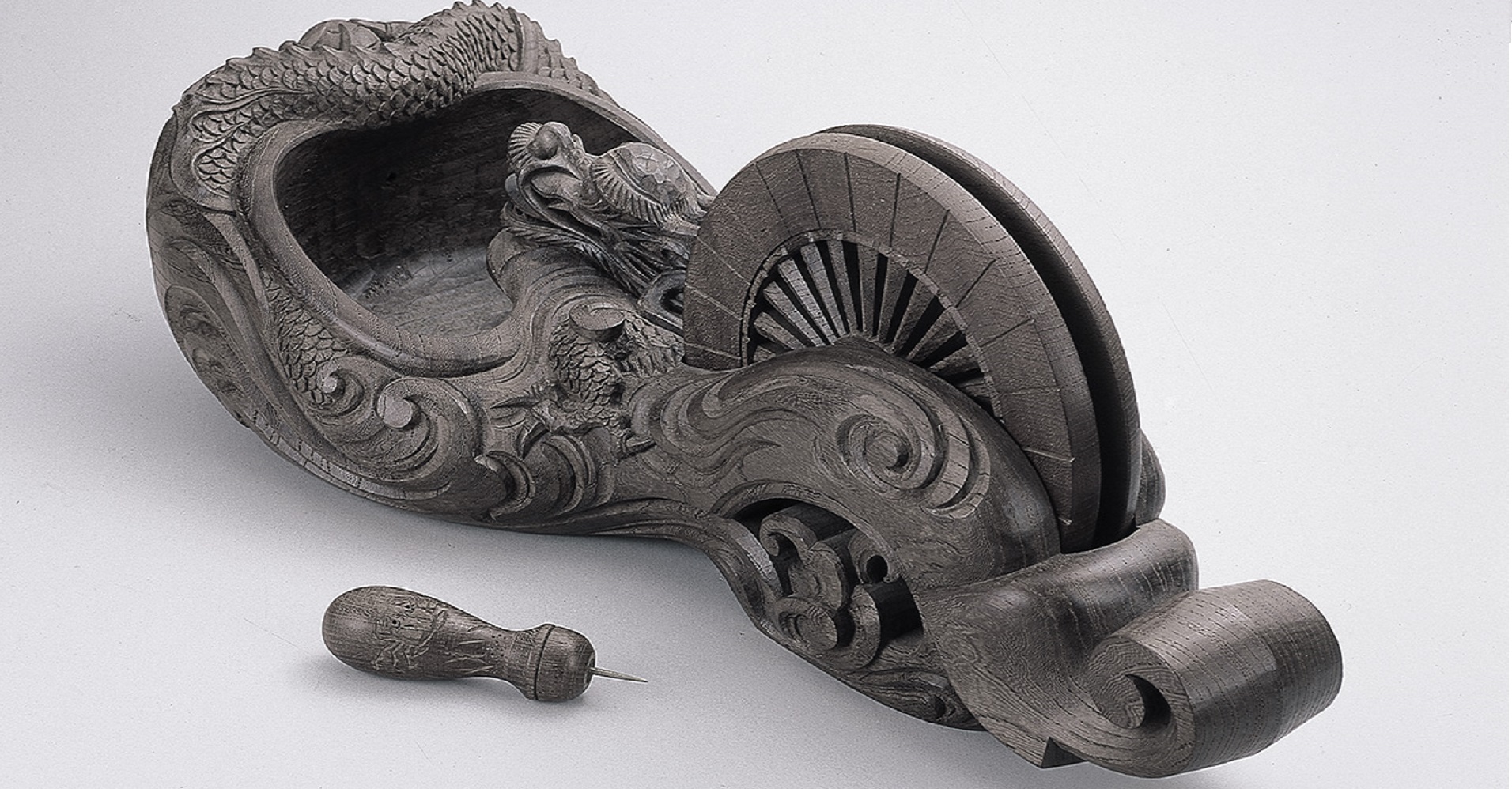
After that, the company continued to make other classical Japanese instruments and hand tools such as bobbins, karuko (traditional Japanese string lines) and awls. By the time the second generation of the founding family was in charge the company had moved into producing products using plastic. For the next 80 years Marunao continued to produce carpentry tools. However, due to declining demand for new buildings as well as changes in building techniques finding alternative sources of generating income became inescapable. In 2003, under the guidance of the third generation of the Fukuda family, the company moved into the manufacture of chopsticks. In making these utensils the craftsmen were able to draw on their rich experience of working with ebony and shitan using traditional finishing techniques.
Marunao finalized chopsticks, which were highly functional, carefully crafted with exquisite attention to every detail, from the tips of the chopsticks to their octagonal shape, whilst always bearing in mind the dining experience of the user.
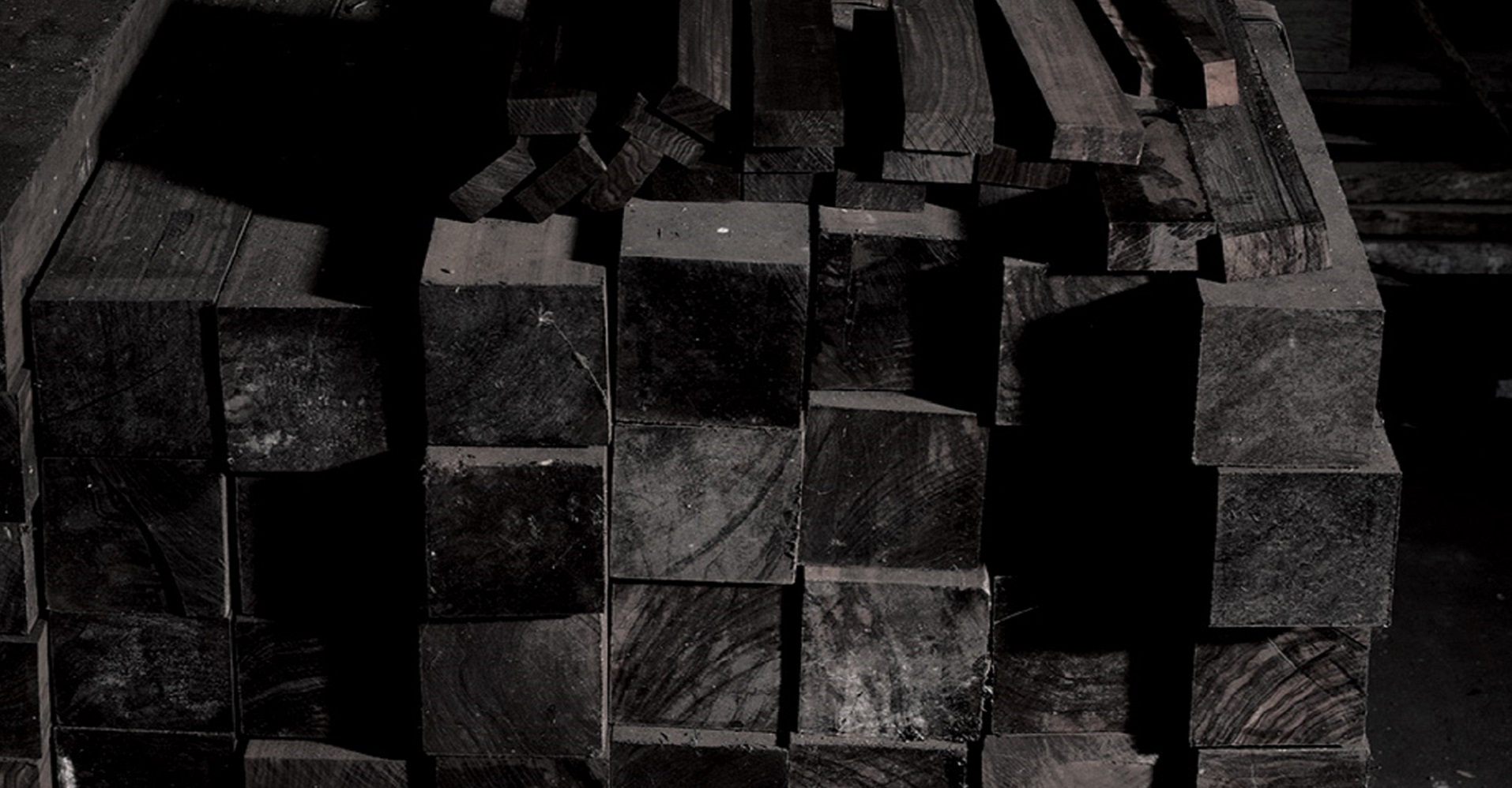
The birthplace of Marunao
Tsubame-Sanjo, land of rich, fertile earth and home to precision metalworking. Marunao’s homeland is one where man and nature live and work in harmony and started life at the very heart of the city.
Marunao believes that the trauma of repeated flooding has helped to forge the indomitable spirit of our master craftsmen,a spirit which is in the very DNA of the products we create.
In 2014, Marunao opened our headquarters in the Yada district of Sanjo city as a combined factory and retail shop.Overlooking Mount Yahiko, the hills of the Echigo Plain roll out before the eyes, enabling one to experience first-hand the passing of the four seasons. Nestled deep within the forest, the factory lends a sense of permanence to the art of making. It is for this reason we chose this particular site.

The philosophy of making materials
These trees have lived in the Tropics for several hundreds of years. Preserving the individual characteristics of that wood, maintaining as many of its charms as possible, Marunao seeks to incorporate it into their daily lives. Here at Marunao they scoured the world for the best material to make spoons and chopsticks, finally settling on ebony, a hardwood with a high degree of specific gravity. During the selection process they take great care to find out which island and which region the wood came from. The same species of tree will yield different wood depending on the conditions of the soil and the climate.
Within the central duct the wood is left to dry naturally over time. This is the period at which it transforms from simply ‘wood’ to ‘material’. It is then repeatedly sanded and smoothed to remove any snags or warps. In this way we avoid wasting a single piece of the precious material.
To complement the wood we also use artificial marble, impregnated wood, 18 carat gold and sterling silver. The different materials are combined with the wood in such a way as to give the impression that they have always co-existed as a single entity. At Marunao they live and breathe the philosophy of making materials.
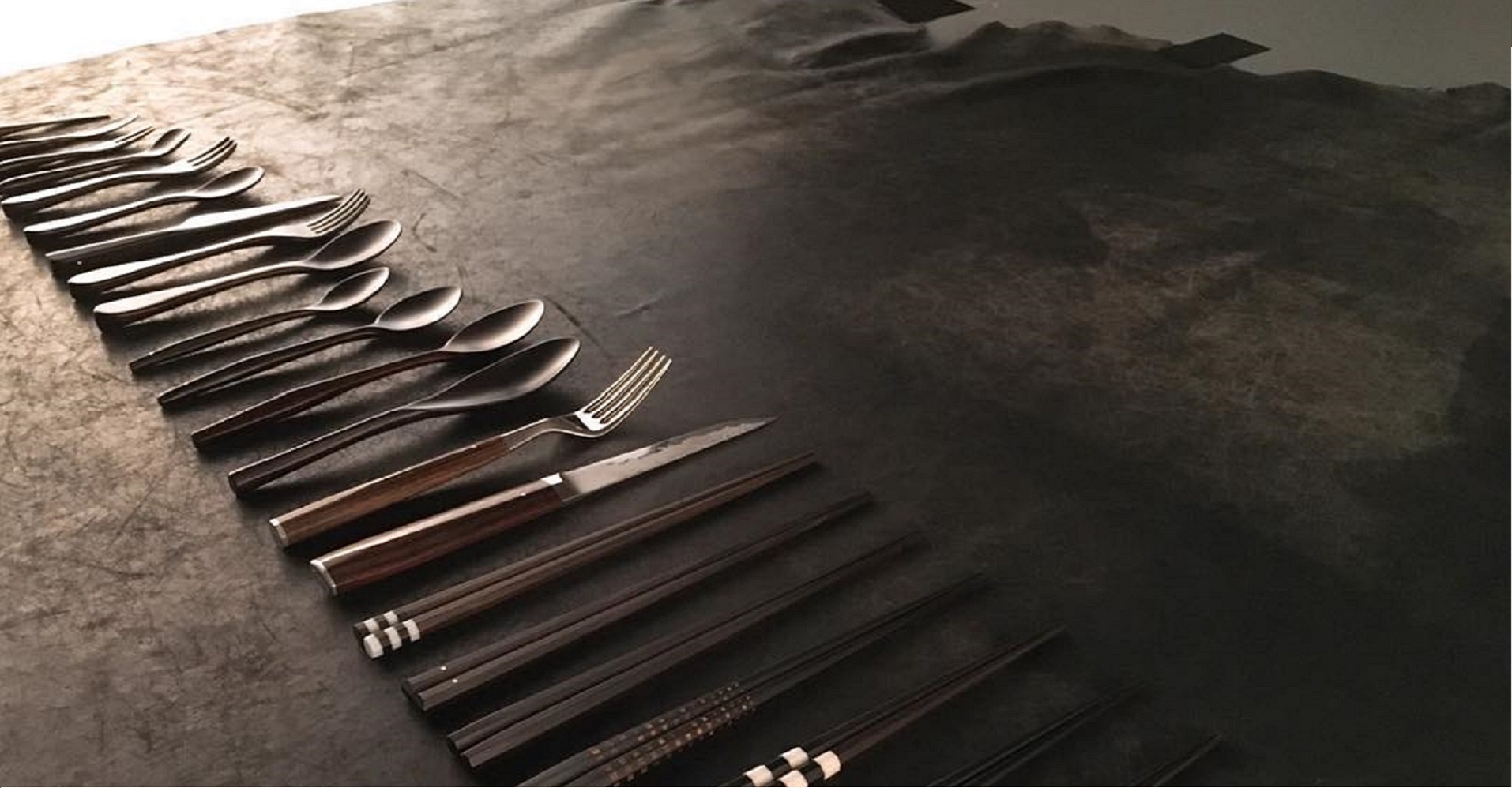
Marunao’s techniques
‘Shaa, shaa, shaa’ – the constant sound in our factory, that of wood being whittled.
With patience, love and dexterity the tips of the chopsticks are smoothed down to an octagonal shape of 1.5mm.
This painstaking polishing is undertaken in order to achieve the very best feel for the user, and it is the patience and dexterity that goes into making our products that forms our most compelling appeal.
Marunao is deeply conscious that the products they make are intended to be touched by hand, and will be used within the mouth. As such we have created a range of spoons and cups of a quality and calibre hitherto unknown. Through the fusion of finishing made possible by the use of high precision machinery and traditional hand techniques they have been able to engender a truly original range of products.
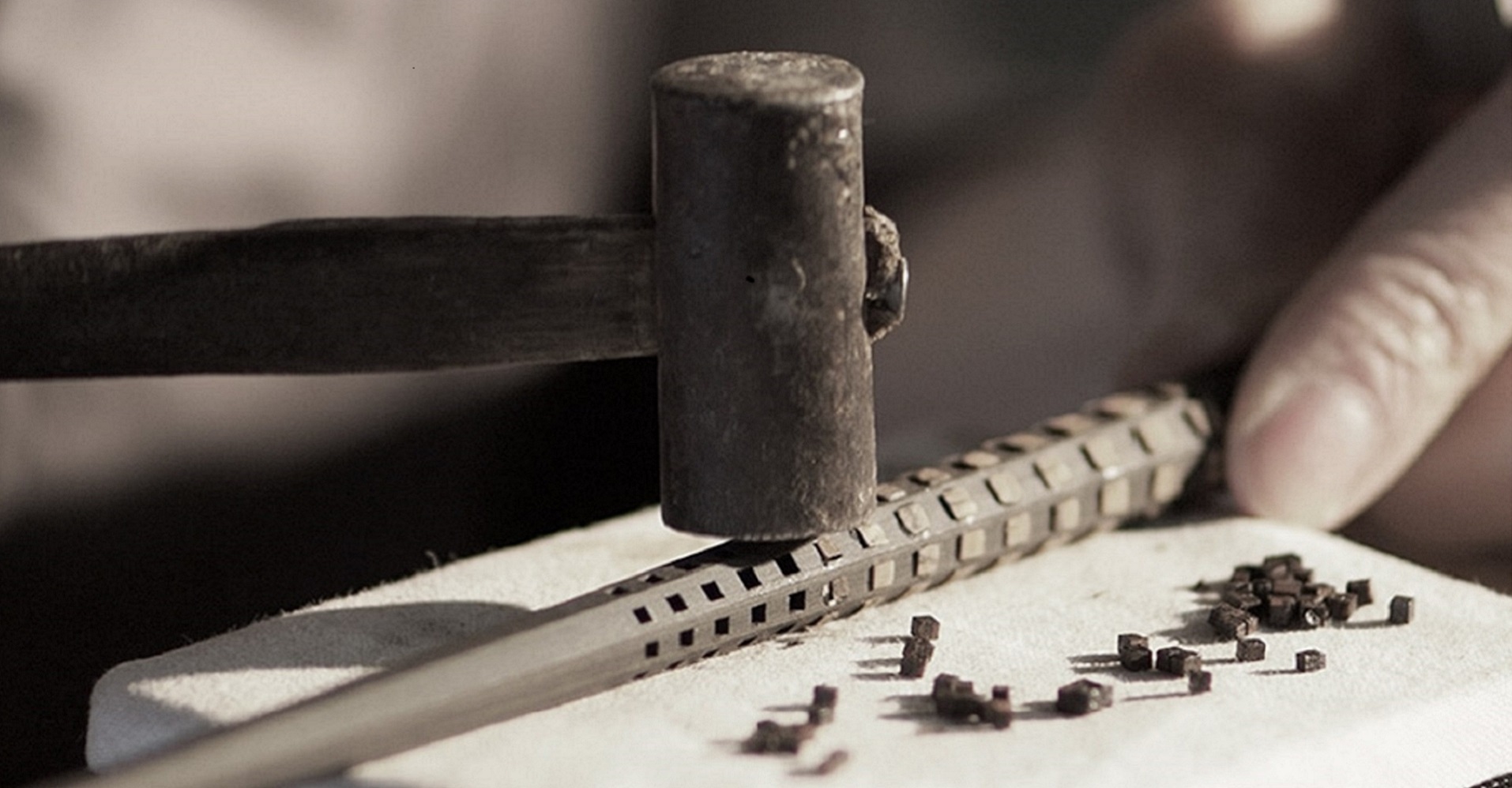
About the material
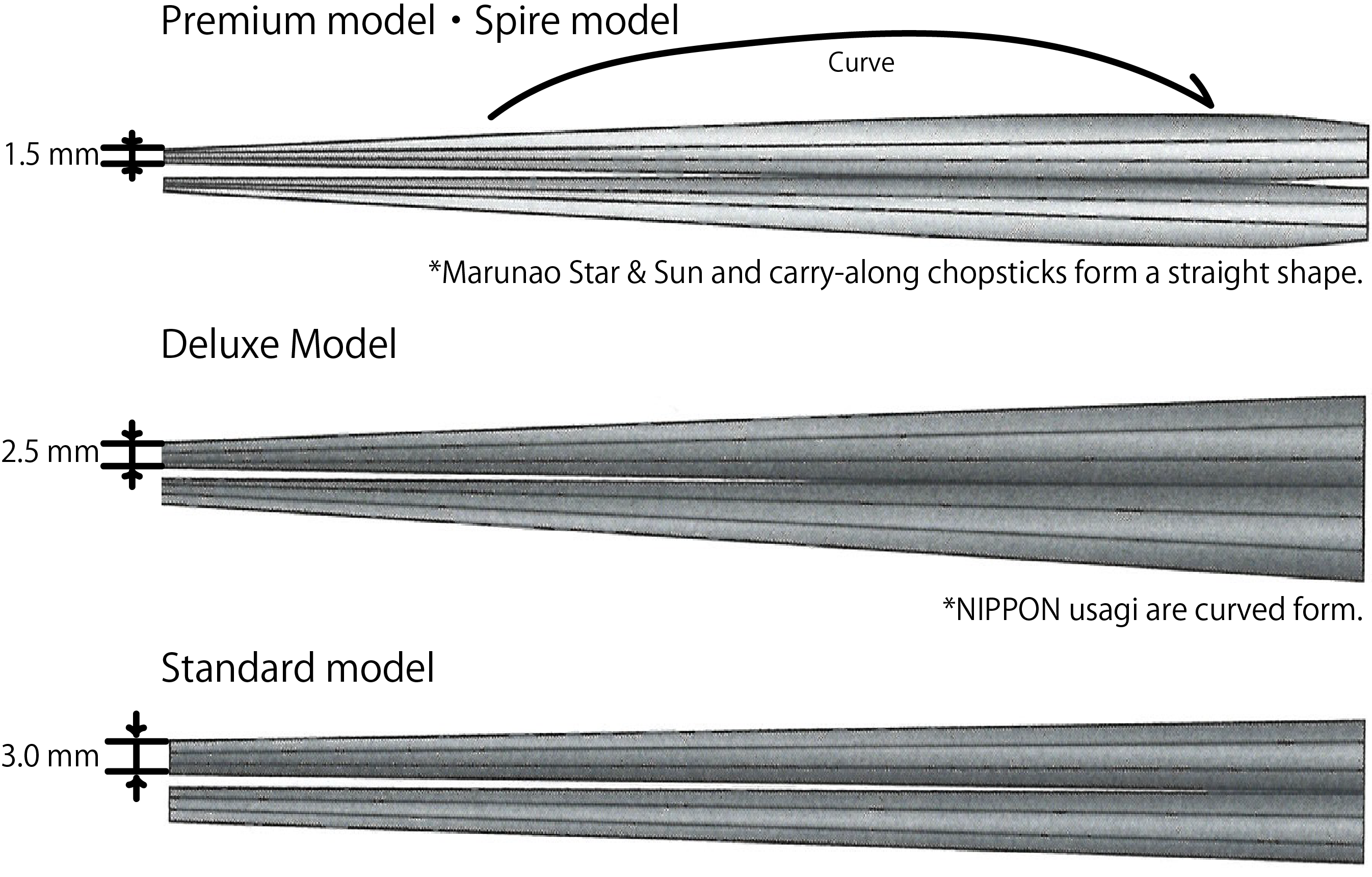
Ebony
A strong, durable, water resistant wood cut from the Ebenacae family of tree, prized of its beauty and strength.
Shitan
Shitan, from the Fabacecae of plants, it prized of its resin. This wood allows our products a dashing hint of red. Prized of its beauty and strength.
Lignum Vitae
A member of the Zygophyllaceae family, native to South America, Lignum Vitae is said to be one of the hardest woods in the world and very difficult to work with.
Snakewood
A South-American board-leafed tree primarily used in the creation of violins and premium fountain pens. This is one of the rarest and most highly-valued woods known to man.
Rare ebony
Within the spectrum of ebony woods, there is one particular region that grows an ebony plant with a dramatic striped pattern. This ebony is prized above all others for its sheer beauty and balance.
Bocote
Bocote, with its characteristic pattern of earthy yellows and deep greens, is an dense and hard wood of the Boraginaceae family, native to Central America.
Kumea
A wood noted for its sheer strength and durability. Kumea was once used to build the ships and seafaring vessels of ancient Japan.
Pernambuco
Native to Brazil, a member of the Leguminosae family. Orange in colour this wood is often used in making bows for the violin.
Purpleheart
Native to South America, this purple wood is of the Leguminosae family.
Kingwood
With the lustrous sheen of its bright purple and black grain, this member of the Leguminosae family more than lives up to its name of “King of Woods”.
Artificial marble
Durable screws made with artificial marble from Du PontTM CORIAN○R, give our product grace, and a feeling of warmth.
WPC
The beauty and feel of wood-grain with the added strength and resilience of thermoplastics -- This is WPC. WPC do not corrode and are highly resistant to rot and decay. The wood used in particular process is maple wood.
Mikarta
A laminate of layered linen and phenolic resin.
Open Factory
Here the guests can view through glass panels the delicate manufacturing process, from the selection of material to detailed processing. Guests will be impressed by the finesse and dynamic movement of the hands of our artisans.
Shop Details
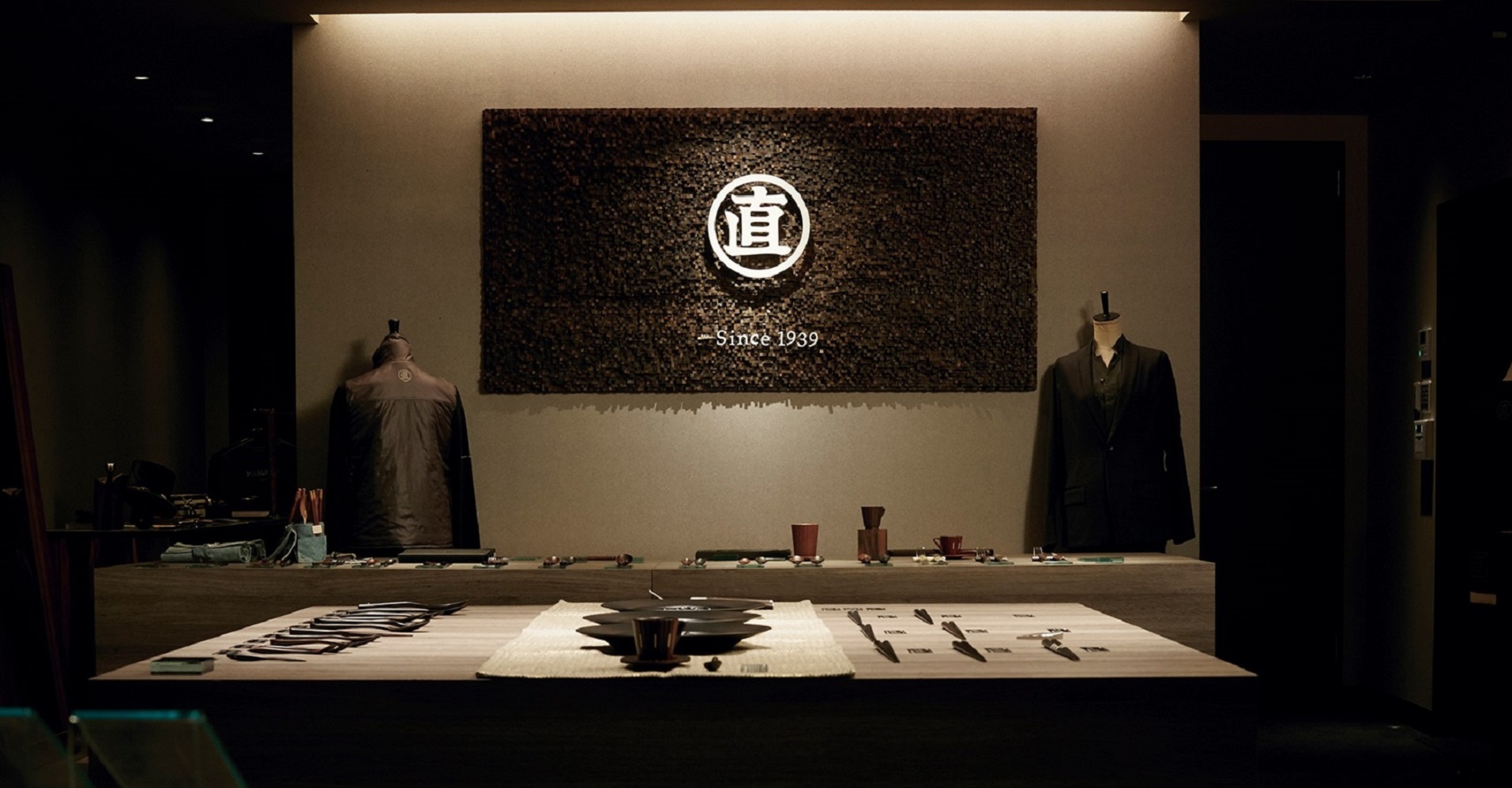
FACTORY SHOP
1662-1 Yada Sanjo-shi Niigata 959-1107 JAPAN
MON - SUN 10:00 am - 07:00 pm
Except for 30,31/12and1-3/1
MARUNAO AOYAMA
5-47-13 Jinguumae Shibuya-ku Tokyo 150-0001 JAPAN
MON - SUN 11:00 am - 07:00 pm *Closed on Wednesday.
By Subway : Tokyo Metro Ginza Line , A 3-minute walk from Omotesando Station [Exit 2]
MARUNAO PARIS
33 Rue Rousselet, 75007 Paris, FRANCE
TEL: 01 71 50 50 51
TUE- SAT 11:00 am - 07:00 pm *Closed on Sunday & Monday.
By Metro : A 5-minute walk from Duroc Station or Vaneau Station.
OPEN FACTORY
9:00 am - 5:30 pm (Monday to Friday)
10:00 am - 5:30 pm (Saturday and Sunday)
*variable each year Work stops between 12h00 and 13h00 for lunch.
*Our artisans do different work every day.


